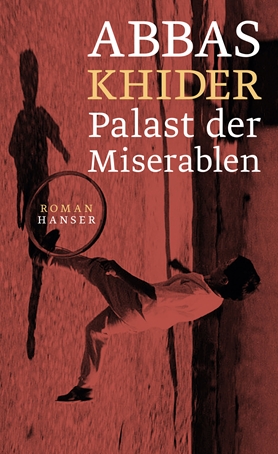“As always, Abbas Khider writes realistically and directly. His language isso smooth and precise that not only the action makes the reader breathless, but also the rhythm of his sentences. The Palace of the Wretched is his best book to date.” - Klaus Hübner, Tagesspiegel, 18.02.2020
“What Abbas Khider gives us is the certainty that everything can be taken away from people –excepttheir greatness and dignity.” - Alexander Solloch, NDR Kultur, 05.02.2020
“Abbas Khider is a wonderful writer... This book is as light as it is ruthless,and as hard as it is poetic.”- Bianca Schwarz, hr2 culture, 17.02.20
“Khider pens his characters with worldly-wise tenderness. He alsowrites inspiringly of beingpassionateaboutliterature... This novel is aportrait of a country that has never been at peace, not even today. An Iraqi coming-of-age story. A fist beating on a closed door.” - Carsten Hueck, Deutschlandfunk Kultur, 20.02.20
“Abbas Khider writes so electrifyinglythat it makes you shiver. But it is the reality that obscures the hopeful aspects of this novel.” Cornelia Geissler,Frankfurter Rundschau, 27.02.20
“Abbas Khider has long been one of the most important German-speaking writers of our times. His literature is surprisingly sober with its short sentences, hisrelentless eye for the atrocities of war and torture, and humour that is part liberating, partbitter. ... A stirring new novel.” - Julia Encke, Frankfurter Allgemeine Sonntagszeitung, 19.08.2018
This is the story of a boy from the slums of Baghdad – up to the moment when his life falls apart forever. A personal, vivid novel filled with unforgettable characters. Both existential and immediate, as only Abbas Khider is able to spin a yarn.
Shams Hussein is an ordinary boy with ordinary dreams. Hoping for a more peaceful life, his parents move with him and his sister from the south of the country to Baghdad. Soon they are living in the “Tin Quarter” next to a huge garbage mountain. These are the years of the economic embargo against the country under Saddam Hussein. The quest for a better future quickly turns into a life of existential struggle. Shams has no time to grow up: he works as a plastic-bag seller at the bazaar, as a bus driver’s assistant, as a carrier. And he loves books. But at a time when one wrong word can mean death, he enters a world whose dangers he does not see coming.
